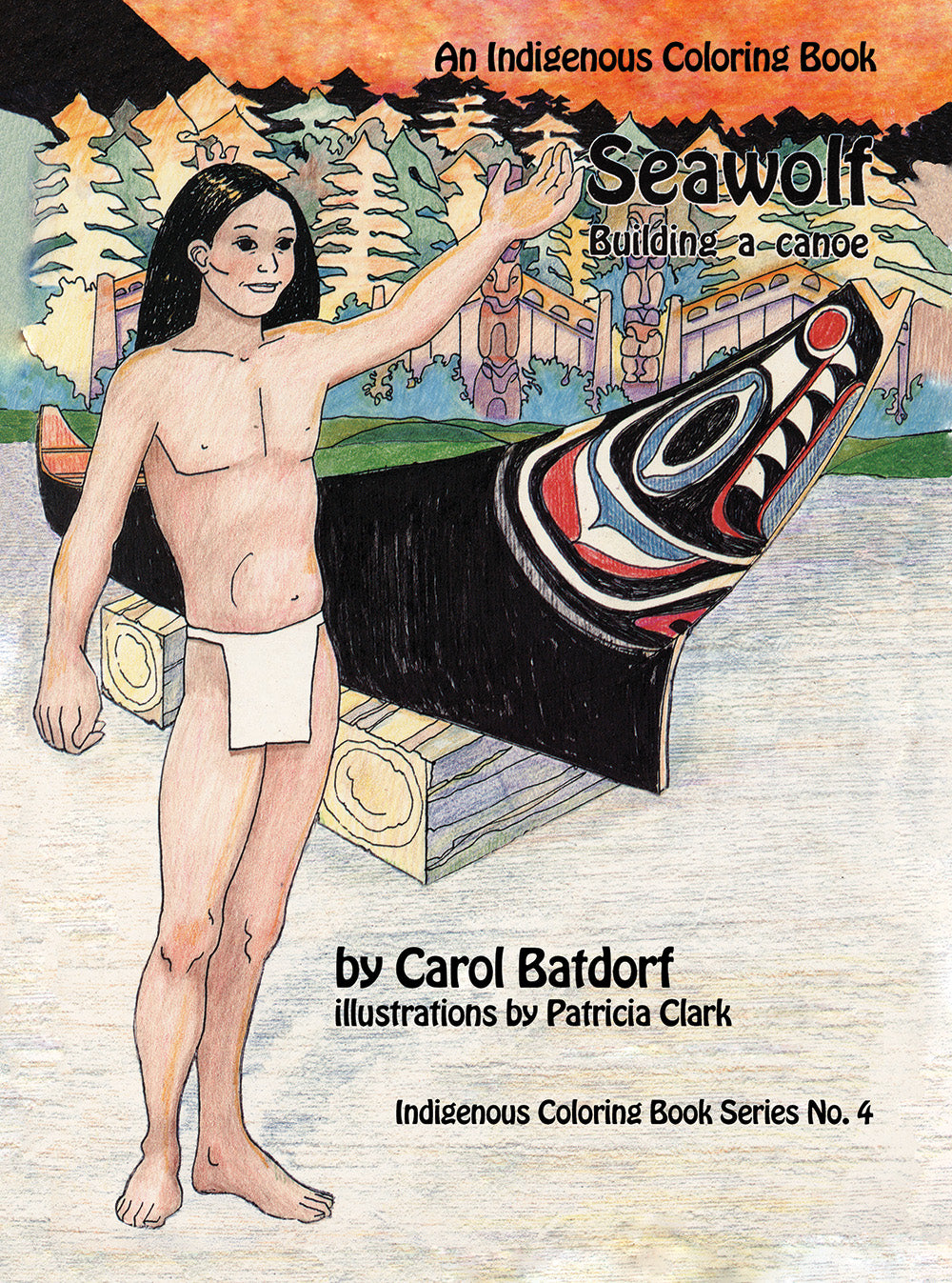

Seawolf- An Indigenous Coloring Book: building a canoe
Details
By: Carol Batdorf (author) & Patricia Clark (illustrator)
ISBN-13: 978-0-88839-184-1 (Revised 2018 Edition)
ISBN-13: 978-0888392-473-6 (Original ISBN)
Binding: Trade Paperback
Size: 8.5" x 11"
Pages: 24
Illustrations: 24
Publication Date: 1990 / 2018
ISBN-13: 978-0-88839-184-1 (Revised 2018 Edition)
ISBN-13: 978-0888392-473-6 (Original ISBN)
Binding: Trade Paperback
Size: 8.5" x 11"
Pages: 24
Illustrations: 24
Publication Date: 1990 / 2018
Description
Long ago, Indigenous people lived in villages along the beaches and rivers of the northwest coast. Their houses were made of planks cut from huge cedar trees. They carved beautiful canoes, big enough to carry many people on long voyages across ocean waters. They made clothes out of skins and furs for special occasions and to keep themselves warm. They also used cattails and cedar bark for everyday clothes. They wove warm blankets of mountain goat hair and dog fur, mixing it with feathers and other soft materials.
Their food came mostly from the sea. The men fished and some caught huge whales. The women dug clams and gathered roots and greens to cook and eat. They worked hard, but there was food for all and time to enjoy themselves, too.
Children learned by watching the grownups work and then they worked too. There was no school to go to, but every day was a time to learn new things. They played too. A favorite game was a tug-of war. They played hiding things and finding them, and they raced each other to see who was the fastest. They loved the water and spent much time swimming and paddling small canoes.
When you color the pages of this book, you can learn some of these things those children did long ago. Since there is a lot of detail in the pictures, you might want to use felt pens, or colored pencils instead of crayons. Whatever you decide to use, most importantly, have fun!
Their food came mostly from the sea. The men fished and some caught huge whales. The women dug clams and gathered roots and greens to cook and eat. They worked hard, but there was food for all and time to enjoy themselves, too.
Children learned by watching the grownups work and then they worked too. There was no school to go to, but every day was a time to learn new things. They played too. A favorite game was a tug-of war. They played hiding things and finding them, and they raced each other to see who was the fastest. They loved the water and spent much time swimming and paddling small canoes.
When you color the pages of this book, you can learn some of these things those children did long ago. Since there is a lot of detail in the pictures, you might want to use felt pens, or colored pencils instead of crayons. Whatever you decide to use, most importantly, have fun!
Author Biography
Carol Batdorf has a long, close and caring association with the Coast Salish people. Apart from studying their culture, learning to carve totem poles and weave baskets, Carol has become Indian. She has served on the staff of the Lummi Communicatee Action program on the Lummi Reserve in Washington State and she has been an instructor in First Nations Studies at Western Washington University.